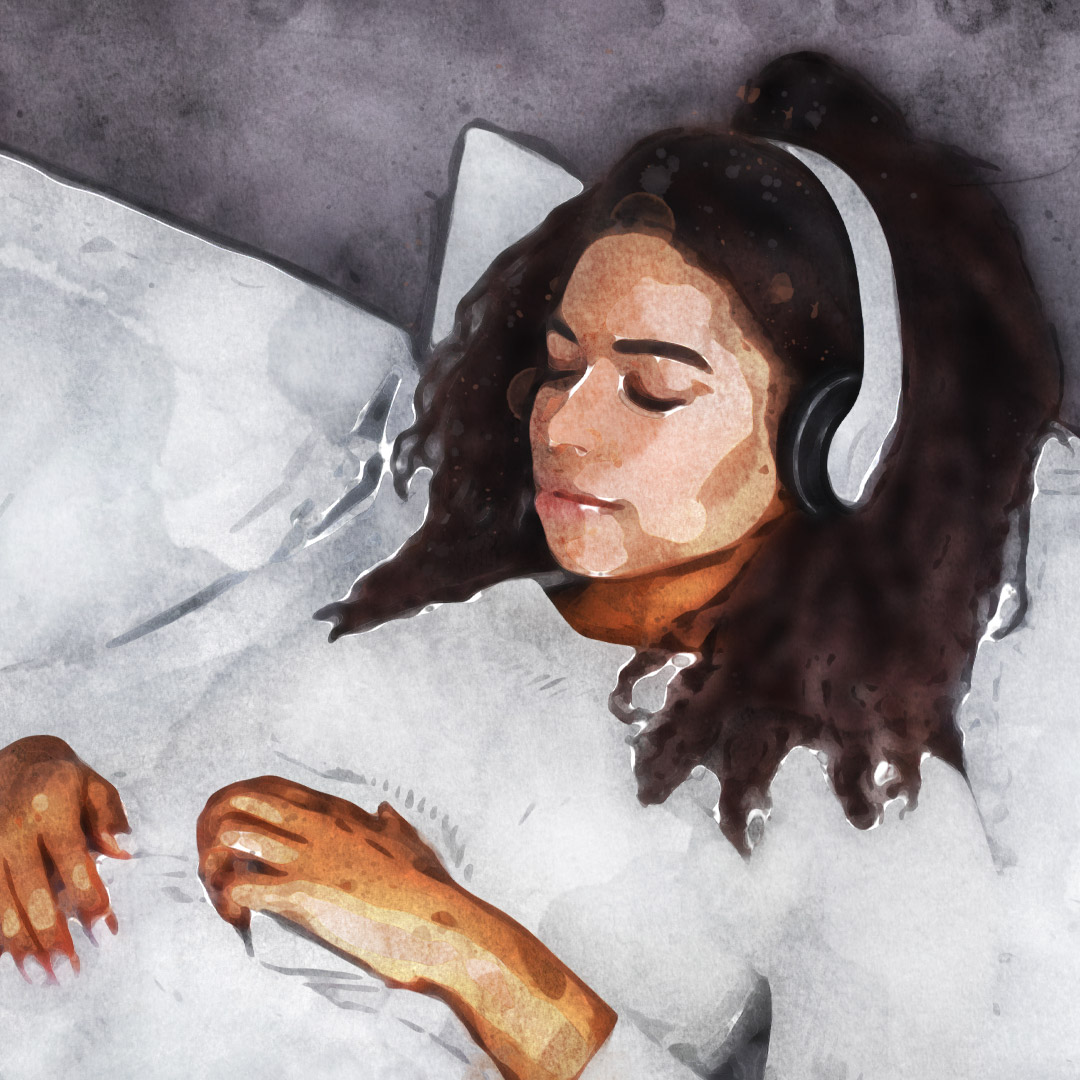Sleep is one of those things that comes naturally for many individuals, and for some restless night is a routine. Our bodies get revamped and rejuvenated after a good night’s sleep.
Adequate amount of sleep is crucial to mental, emotional, and physical health. It is a chief and dominant need of every human body.
What is sleep hygiene?
Sleep hygiene is a variety of different practices and behaviors that are vital in order to have a good night time sleep and full daytime alertness. Keeping your sleep time “clean” from waking time activities will improve sleep and overall quality of life.
Physical and Mental Health Consequences of Chronic Sleep Loss
Insufficient or poor-quality sleep on a regular basis increases your susceptivity to various physical and mental diseases and disorders such as cardiovascular diseases, type 2 diabetes, high blood pressure, obesity, insomnia, depression, anxiety, chronic/acute restlessness and exasperates already existing symptoms of anxiety, depression, bipolar disorder and eating disorders.
Improper sleep negatively interferes with one’s cognitive functions which includes impairment of concentration, attention, focus/alertness, problem solving, reasoning skills and decision-making capabilities. It puts people at risk for various automobile and work-related accidents.
Research has shown that sleep aids in “consolidating” memories in the mind, hence, if you do not get sufficient sleep, you may find difficulty in retrieving information learnt the previous day. In children and adolescents, it can cause memory problems, learning disabilities and ADHD (Attention deficit hyperactive disorder) symptoms.
Unmistakably, sleep is an integral part of emotional regulation as well, a lack of it leaves our emotions in disarray. One often feels grouchy, restless, irritable, angry and impatient after a poor night’s sleep. A good night’s sleep flushes out toxins that build up during waking hours and helps in regulating and managing a range of emotions and thoughts.
How much sleep is required?
Generally, for adults, experts advise that they get 7-8 hours of uninterrupted sleep on a daily basis. Anything less than this can create a “sleep debt” or “sleep deficit” (difference between how much sleep is required by the body and how much you actually get). As the sleep debt builds up, brain and body functioning decline.
It normally takes 10-30 minutes to fall asleep once you climb into the bed. If you are taking too long to fall asleep, or experiencing frequent sleep disturbances and daytime sleepiness, then you should consider re-evaluating your sleep hygiene routine.
Use the following practices to inculcate sleep hygiene on a daily basis. It is interesting to know that sleep hygiene starts as soon as you wake up in the morning.
- Fix and maintain a consistent sleep-wake schedule: Set and stick to a bedtime schedule, sleep on same time every night and wake up at the same time every day to set your circadian rhythm or biological clock. This includes weekends as well. This is a very critical sleep hygiene habit.
- Get sunlight throughout the day: Sunlight is known to be a natural stimulant for efficient functioning of circadian rhythm. Try to stay in a well-lit and well-ventilated area throughout the day. Go out for a small lunchtime or teatime stroll if you have a desk job.
- Avoid naps during the day: Need for afternoon naps indicate chronic sleep deprivation. Napping during daytime hampers quality of sleep and does not compensate for night time sleep, however, short 10–30-minute power nap between 1-3 PM is known to boost mental focus and energy levels. On the contrary, longer naps can cause “sleep inertia”- a condition wherein one feels tired and groggy after waking up from nap.
- Exercise to promote good quality sleep: Make exercise a crucial and healthy addition to your sleep hygiene. Exercising during the day fosters good quality sleep at night. 15-20 minutes of aerobic exercise such as brisk walking, swimming, cycling can positively affect sleep quality, release endorphins (feel-good hormones) and reduce the time taken to fall asleep. However, exercising too close to bedtime will increase heart rate and make it difficult for someone to relax. So always keep a 3-hour gap between your exercise regimen and sleep time. If you are planning to work out in late evenings then try relaxing body stretches and yoga.
- Avoid stimulants: Alcohol, coffee, soft drinks, chocolate and nicotine beyond 6 PM in the evening. These stimulants effect quality of sleep by reducing the time spent in deep sleep, leading to fragmented sleep and nocturnal restlessness. Also, try to avoid engaging in tasks and conversations that are emotionally charging and those that require attention and concentration.
- Melatonin- the sleep hormone: The release of sleep hormone called Melatonin is triggered in the presence of darkness. It plays a significant role in preparing you for sleep. This hormone is inhibited by bright light. Try to dim the lights in your house an hour before bed and stay away from anything that emits blue light as it halts melatonin production and tricks the brain into thinking it is still daytime, even though night time.
- Strictly avoid electronics before bedtime: Minimize your use of gadgets (especially the ones that emit blue light) post dinner. OR at least stop using electronic devices 30 minutes before bed. Help your brain and body process the tranquility of the night.
- Avoid large meals 2 to 3 hours before bed: Sleep gets suppressed while the body takes time to digest food. A gap of 2 hours should be given between your dinner and sleep time to ensure good undisturbed sleep. Moreover, eating too close to bedtime can cause acidity, gastric and indigestion that will further keep you awake in bed. Also avoid drinking lot of water before bedtime. This is another important sleep hygiene habit that you should develop.
- Try magnesium rich foods: Add fish or fish oil, almonds, bananas, pumpkin seeds, warm milk, cherries/a glass of cherry juice before bed. You can also include whole grains and dark leafy vegetables such as oats, brown rice, amaranth, swiss chard, mustard greens and spinach in dinner. Magnesium relaxes muscles and promotes sleep.
- Keep your bed room for sleep only: Avoid eating, working or studying on bed. Your bedroom should be a place to relax and unwind. However, you can do some sleep-inducing stretching exercises like knee-to-the -chest or supine twist on bed before sleeping. In addition, breathing exercises like diaphragmatic breathing (abdominal or belly breathing) can be practiced.
- Keep it cool: Sleep in a slightly cool room, this helps the temperature in brain to drop and help fall asleep quicker, cool room puts you in a right temperature to get good sleep.
- Practice bedtime rituals: Physical rituals such as changing into bedtime clothing, brushing teeth, flossing, combing hair etc. indicates the brain that the bedtime is here. Furthermore, bathing, ideally 90 minutes before bed can help you unwind and fall asleep faster.
- Sleep aiding accessories: Get earplugs, eye masks, sound conditioners, and soothing music to facilitate sleep. There are many sleep trackers that measure deep sleep, you could either use a wearable or in-bed sleep tracking device to better understand your sleep quality.
- Do not lie in bed awake: If you haven’t fallen asleep within 30 minutes of getting into bed or have woken up and finding difficult to fall asleep, the advice is to get up from the bed and go to another room, in dim light try to meditate and avoid electronics and food during this time and only when you feel really sleepy should you return to your bed. This way your brain will re-learn the association between bed being a place to sleep/rest, rather than a place to stay awake.
- Stress management: If you find yourself stressing over all the things that need to be completed, then write them down in a sleep journal. Journaling can help alleviate stress to a great extent.
- Try herbal route: Have a cup of chamomile tea 30 minutes before bed, Chamomile is regarded as a mild tranquilizer and sleep inducer, it aids in relaxing muscles and nerves and help you fall asleep quicker. In addition, lavender essential oil aromatherapy, is known to be a gentle and calm way to get yourself into peaceful sleep. Method: Apply oil on your temples or wrists or spray mist over your pillow.
It is normal to have an occasional sleepless night, but if you find that it has become a regular pattern, then you should consider seeing a sleep therapist to sort out deeper reasons behind sleepless nights.






